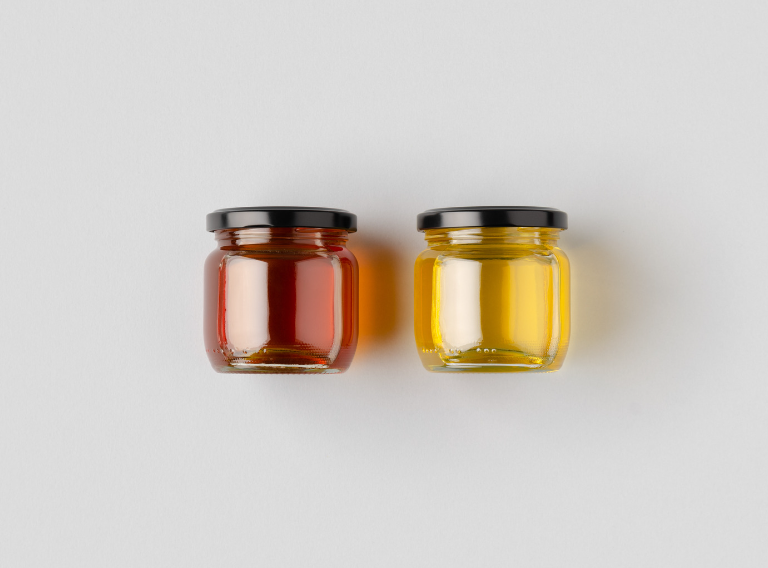Diet & Nutrition
Which is Better for Your Health – Agave or Honey?
The growing field of natural sweeteners includes agave and honey, which have distinct flavors and health benefits. Agave, produced from the succulent plant of the same name, has become popular for controlling blood sugar because of its low glycemic index and high fructose content. Bees collect flower nectar to make honey, a popular food with antioxidant, antibacterial, and vitamin and mineral properties. As individuals look for healthier alternatives to refined sugar, the debate over whether sweeteners are most nutritious deepens. This article will compare the nutritional profiles, health benefits, and downsides of agave and honey to answer the age-old question: which is healthier? We intend to help readers decide whether to eat these sweeteners by analyzing scientific data and culinary history. Let’s explore agave vs. honey and learn the facts.

Nutritional Comparison
Agave and honey are popular healthy sweeteners. Honey and agave offer distinct nutritional benefits. To assist you choose, we’ll compare agave and honey’s nutritional composition.
Caloric Content
Agave and honey are calorie-dense. One tablespoon of honey has 64 calories and one tablespoon of agave has 60 calories. Agave and honey calories vary by brand and sweetener.
Sugar Composition
Agave and honey have different sugars. Agave nectar is mostly fructose, while honey contains glucose, maltose, and sucrose. People with diabetes or those seeking to manage their blood sugar may choose agave nectar over honey due to its lower glycemic index.
Vitamins and Minerals
Vitamins and minerals differ between agave and honey. Agave nectar has iron, calcium, and potassium, while honey has vitamin C, niacin, and riboflavin. Agave and honey have little protein, fat, and fiber.
Agave and honey have similar nutritional composition, but each has its own benefits. Diabetes patients may prefer agave, while individuals seeking natural vitamins and minerals may prefer honey. Since they are heavy in calories and sugar, agave and honey should be eaten in moderation.

Health Implications
Glycemic Index
Because of their high glycemic index, agave nectar and honey can quickly raise blood sugar. Agave nectar has a lower glycemic index than honey, making it ideal for diabetics and blood sugar watchers.
Impact on Diabetes
Although both agave nectar and honey include natural sugars, they can affect diabetes. Agave nectar has a lower glycemic index than honey, making it better for diabetics. Diabetes patients should take agave nectar and honey in moderation.
Potential Health Benefits
Agave nectar and honey include antioxidants and anti-inflammatories that reduce inflammation and oxidative stress. Honey may also help fatty liver and cardiovascular disease patients.
Risks and Considerations
Remember that agave nectar and honey are added sugars and should be eaten in moderation. Though lower in glycemic index than honey, agave nectar is high in fructose, which can cause weight gain and other health issues if drunk in excess. Honey allergies should also be considered.
Usage in Diet
There are several factors to consider while choosing agave or honey for your diet. Both are natural sweeteners, although their composition and flavor vary. This section covers agave and honey culinary uses, vegan alternatives, and allergy concerns.
Culinary Uses
Honey and agave are used in baking, oats, and yogurt. Agave, unlike honey, has a neutral taste, making it a popular choice for sweetening meals without changing its flavor. Honey is a fantastic tea ingredient, but agave may be sweeter.
Vegan Alternatives
Agave can replace honey for vegans. Agave is vegan since it comes from plants, unlike honey. In liquid sweetener recipes, agave works well instead of honey.
Allergy Considerations
Agave and honey might induce allergic responses in certain people. Honey and agave may trigger allergic reactions in those allergic to Asparagaceae plants like onions and garlic. Food allergy issues should be discussed with a doctor.
Honey and agave can be utilized in many ways in the diet. While agave may be preferable for vegans, honey adds more health advantages to tea. Consider personal taste, dietary constraints, and allergies when deciding between the two.

Production and Sustainability
Sourcing and Harvesting
Bees turn floral nectar into honey. Beekeepers prepare honey from honeycomb before selling it. However, chopping off the leaves and extracting the sap from the agave plant yields agave nectar. The sap is boiled to convert complex carbohydrates to simple sugars, creating syrup.
Agave nectar is less sustainable than honey for sourcing and harvesting. Bees are natural pollinators and help ecosystems stay healthy and diverse. Agave plants are commonly monoculture, which can harm soil health and biodiversity. Since agave plants take years to recover, harvesting them can harm them.
Environmental Impact
Honey and agave nectar production’s environmental impact depends on location, methods, and scale. Honey production generally has less environmental impact than agave nectar.
Honey manufacturing is simpler than agave nectar production, which involves heating and filtering sap to make a syrup. This processing can be energy-intensive and emit greenhouse gases. Monoculture farming of agave plants can also degrade soil and deplete water resources.
While both honey and agave nectar have their own health benefits, honey is generally more sustainable in practice. However, there are many elements to consider when assessing the sustainability of different sweeteners, and the most sustainable choice may depend on the context and circumstances.
Conclusion
Finally, agave and honey offer different benefits and considerations. Agave, with its low glycemic index and high fructose content, may appeal to diabetics, but its high processing and environmental implications warn caution. Honey, known for its antioxidants, natural sweetness, and variety of nutrients, is a traditional choice for wound healing and allergy treatment. Its increased glycemic index and pollutant risk require careful eating. Due to personal tastes, dietary demands, and ethical concerns, the healthiest sweetener may not be evident. Agave and honey have different properties and effects, so customers can make health-conscious decisions to ensure sweetness with the substance in every bite.
Trusted Health, Wellness, and Medical advice for your well-being


